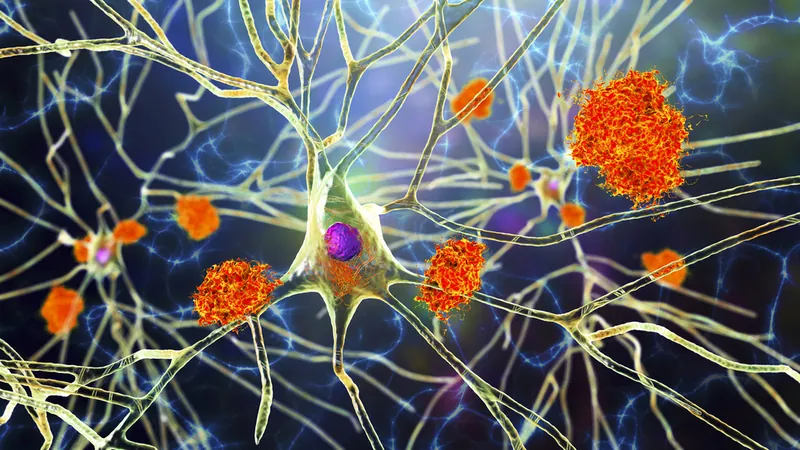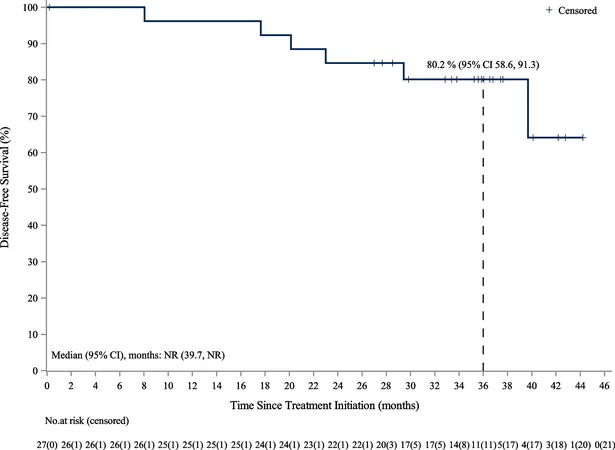
Scotland’s North Faces Alarming Rates of Huntington’s Disease: What You Need to Know
2025-04-15
Author: Sarah
A Disturbing Discovery in Northern Scotland
New research from the University of Aberdeen has unveiled a shocking reality: Northern Scotland harbors some of the highest rates of Huntington's disease in the world. This groundbreaking study marks the first accurate assessment in 35 years of how many individuals in this region carry the gene responsible for this devastating condition.
Staggering Numbers Revealed
Employing NHS family records, researchers identified over 160 adults across Grampian, Highland, Orkney, Shetland, and the Western Isles who possess the Huntington's gene but remain untested. The true number could be even greater, as many with symptoms often do not seek a formal diagnosis. The study published in Neuroepidemiology found that Northern Scotland's rate stands at a staggering 14.5 cases per 100,000 people—more than five times the global average of just 2.71.
The Genetic Gamble
Huntington's disease is not just a statistic; it presents a tragic reality for families. Each child of an affected individual has a 50% chance of inheriting the neurodegenerative gene, leading to a gradual decline in essential functions such as walking, speaking, and independent living. On average, diagnosed individuals have at least 2.2 relatives who carry the gene, implying that hundreds more in Northern Scotland could benefit from potential treatments.
A Shift in Research Approach
Led by Professor Zosia Miedzybrodzka and genetic counsellor Heather Cruickshank, the research diverged from past studies that predominantly focused on confirmed cases to now include those who are at risk but have yet to be tested. This innovative approach aims to ensure future investments into specialized care for the affected.
The Bigger Picture Across Scotland
If the Huntington's disease rates observed in the north reflect Scotland as a whole, nearly 800 individuals might already exhibit symptoms, and almost 2,500 could be living with the gene silently. Professor Miedzybrodzka emphasizes that previous estimates have significantly underestimated the number of individuals at risk, highlighting the urgent need for accurate data to plan for future care.
Calls for Action and Support
Heather Cruickshank stresses that despite advancements in testing since 1989, many at risk in Scotland remain untapped. With global efforts intensifying for treatment options, healthcare services must prepare to address the needs of both tested and untested individuals. The call for better genetic counseling, management, and treatment strategies has never been more crucial.
A Groundswell of Support for Families
Alistair Haw, CEO of the Scottish Huntington's Association, noted that a recent Scottish Parliament motion advocating for enhanced services for Huntington's disease has received unprecedented support, further reinforcing the critical need for immediate action. He argues that specialized services are essential, not optional, for preventing patients from reaching crisis levels.
Conclusion: Why This Matters Now More Than Ever
As we face rising cases of Huntington's disease, understanding the scale of the issue is vital for effective healthcare planning. The findings from Northern Scotland not only shine a light on a local crisis but also serve as a clarion call for investment in much-needed services and research, offering hope for those affected and their families.


 Brasil (PT)
Brasil (PT)
 Canada (EN)
Canada (EN)
 Chile (ES)
Chile (ES)
 Česko (CS)
Česko (CS)
 대한민국 (KO)
대한민국 (KO)
 España (ES)
España (ES)
 France (FR)
France (FR)
 Hong Kong (EN)
Hong Kong (EN)
 Italia (IT)
Italia (IT)
 日本 (JA)
日本 (JA)
 Magyarország (HU)
Magyarország (HU)
 Norge (NO)
Norge (NO)
 Polska (PL)
Polska (PL)
 Schweiz (DE)
Schweiz (DE)
 Singapore (EN)
Singapore (EN)
 Sverige (SV)
Sverige (SV)
 Suomi (FI)
Suomi (FI)
 Türkiye (TR)
Türkiye (TR)
 الإمارات العربية المتحدة (AR)
الإمارات العربية المتحدة (AR)